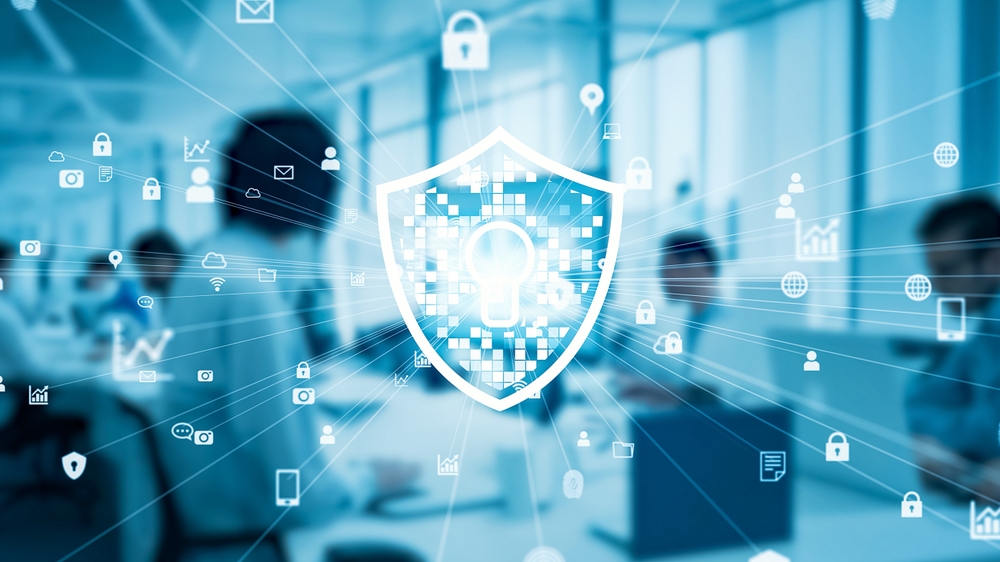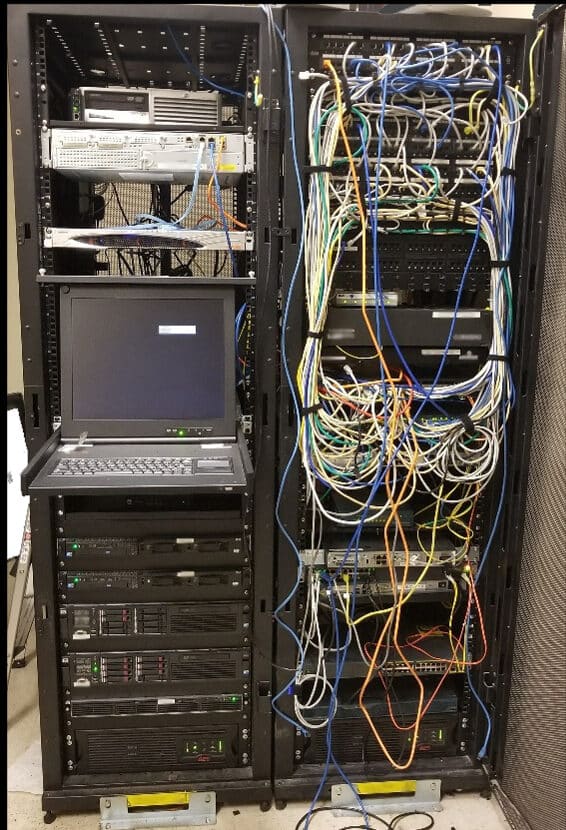Cyberattacks were ranked as the fifth-highest possible security risk faced in 2020. There are more efforts than ever in place to ensure that networks remain secure from potential cyber-attacks.
One such area concerns the idea of endpoint security. We’re going to delve into detail on what exactly endpoint security is.
To do this, we’re going to outline the chain of attack in endpoint security, about the cyber kill chain. That way, you should first know what exactly endpoint security refers to.
But you should also know the trajectory of a cyber attack, and how endpoint security works to prevent them.
What is Endpoint Security?
Endpoint security is one area of cybercrime prevention popular in cybersecurity design today.
Specifically, endpoint security is the means of making all endpoints that access any network secure. But what exactly is an endpoint?
An endpoint refers to the endpoint of a network, the furthest point away from the center. That means it refers to any IoT device or system that is attempting to connect with the main network itself.
Endpoints can therefore be networks, mobile phones, user profiles, tablets, and more.
Endpoint security is the process of ensuring that these endpoint access points are safe from infiltration. This is why several endpoint security tools have been designed to help secure these endpoint areas.
This includes cloud solutions. What is cloud endpoint security? It’s a way of adapting the cloud to ensure that any endpoint access from a device can be tracked or blocked if necessary, among other solutions.
To understand the nature of endpoint security, you first need to know about what’s known as the cyber kill chain.
What is the Cyber Kill Chain?
The cyber kill chain is an attack trajectory in endpoint security and the wider field of cybersecurity as a whole. It’s a framework designed by Lockheed Martin to evidence how a cyber attack happens to a network.
The cyber kill chain can be split into seven distinct stages, which we’ll highlight now.
The first of these is reconnaissance. This is where potential cyber attackers scout out a network before committing any form of crime. Think of this as scouting out a bank by looking at floor plans and employee switches before robbing it.
With cyber, this naturally involves more technical approaches. Cybercriminals may harvest email addresses and account details from registered users. Or, they may use publicly available information.
In stage two, cybercriminals move on to weaponization. This is where they take the information they’ve garnered and turn it into an exploitation approach at an endpoint.
As you can see, the first two phases of the process are already tailored around endpoint breaches.
In stage three, cybercriminals deliver this weaponized data or approach. This again occurs at the endpoint of a network.
Once delivered, stage four concerns exploitation. This is where cybercriminals exploit their newfound access to ensure they can insert their code into a system.
From here, the final three stages involve installing malicious malware onto a network through this entry point. Then, cybercriminals can command and control a network from this software.
Finally, they laterally move through a system to attain their ultimate objective.
How Does the Cyber Kill Chain Relate to Endpoint Security?
The cyber kill chain shows us how vital endpoint security is to overall network security.
This is thanks to another concept introduced above, known as lateral movement. A cybercriminal will always enter a system from the fringes, known as the endpoints.
They will then use this entry point to infiltrate deeper into a network. This is where confidential data and information are normally hidden. This process is known as lateral movement.
This is because it’s how a cybercriminal moves deeper into a system.
Endpoint security ensures that the original access point used by criminals is as secure as it can be. This limits the leverage they’re able to get over a system. If done right, this prevents them from getting further into a network.
Think of endpoint security as putting up trenches at the very edge of a battlefield. This is your main defense against the enemy; if an endpoint falls, then they will continue onwards to your base of operations.
There are other reasons why endpoint security is important that go beyond the cyber kill chain, however.
Why is Endpoint Security Important?
The first major benefit of endpoint security is, as mentioned above, the ability to protect endpoints from cybercrime. But its importance stretches beyond this fact.
For starters, endpoint security is vital to ensuring that remote work and collaboration can be conducted as safely as possible.
This is particularly important today with the continued trend of remote working. There are now more regular endpoints accessing a system than ever before. Though remote work has provided many benefits, it has caused a lot of security concerns that need to be resolved.
Endpoint security also serves as a wider, sophisticated network protection protocol. As the first point of attack, endpoint security defends other network systems.
But it can also work alongside these other cybersecurity measures. This helps it provide a comprehensive security system for a network.
Finally, endpoint security is also important in that it helps to protect identities. Employees and individuals will log into personal or corporate accounts or profiles to access networks.
These are reliable methods of ensuring everyone has their unique access point for a shared network. But it does pose potential problems relating to identity security.
If a hacker can infiltrate endpoints, they will be able to steal this personal data. This brings up additional concerns, such as identity theft, or the selling of personal data to third parties.
Endpoint security helps ensure that these actions simply aren’t possible. It, therefore, works to protect both the network as a whole and the personal data of those who are hoping to access it.
How Exactly Does Endpoint Security Work?
So, now we know the benefits of endpoint security and how it relates to cyber threats. But how does it work to protect a system?
Endpoint security operates off of a process whereby initially any device accessing a system is evaluated. This is a way of obtaining information about who is trying to access a system at any one time.
These days, this data is typically stored in a cloud storage system.
Endpoint security solutions will then typically allow for a centralized control system. This is where anyone in control of a network can see this data coming in as it happens.
This isn’t the main way in which endpoint security is enforced though. Instead, this is through what’s usually known as client software.
You’ll likely have come across client software before when using the internet. It refers to the way devices are blocked before entering details like usernames and passwords.
Sophisticated algorithms are used to authenticate this data, and to allow entry where possible. If someone is using these details from an obscure location, this will likely be automatically flagged by the system.
This is where additional verification measures may come into play before a user is allowed access to a system.
Other methods are used in endpoint security, including application control which prevents users from downloading or uploading what could be malicious applications.
All of these processes are also typically encrypted, so they can’t be infiltrated by a hacker.
How Does Endpoint Security Differ From Traditional Antivirus and Firewalls?
Endpoint security has a lot in common with more common security methods like firewalls and antivirus technology.
The first major benefit is that endpoint security works to protect an entire network, rather than just the device itself. Aspects like antivirus are usually only able to defend against attacks on a single device.
Endpoint security is also a more advanced means of these solutions today. This is thanks to cloud computing and continued advancements in cybersecurity as a whole.
Where traditional antivirus technology works through signature-based detection, endpoint security provides more advanced measures. Finally, endpoint security is something that’s managed regularly by an IT support or security team.
This higher level of administration means it’s a larger, more versatile security system for larger networks. Without the right kind of endpoint security, there’s no way the networks we use today would be as secure as they are.
Where Can I Find Out More About Endpoint Security?
You should now know what endpoint security is and the many benefits it has in application today. You should also know a little more about the chain of attacks typical of cybercrimes.
If your company needs cybersecurity or IT support, you’re already in the right place. At Bridgehead IT, we provide support services for companies of all shapes and sizes.
To find out more, make sure to contact our team directly today.
The first major benefit of endpoint security is, as mentioned above, the ability to protect endpoints from cybercrime. But its importance stretches beyond this fact.

Contact us to learn more about how Bridgehead I.T. can help you align your I.T. with your business objectives.


